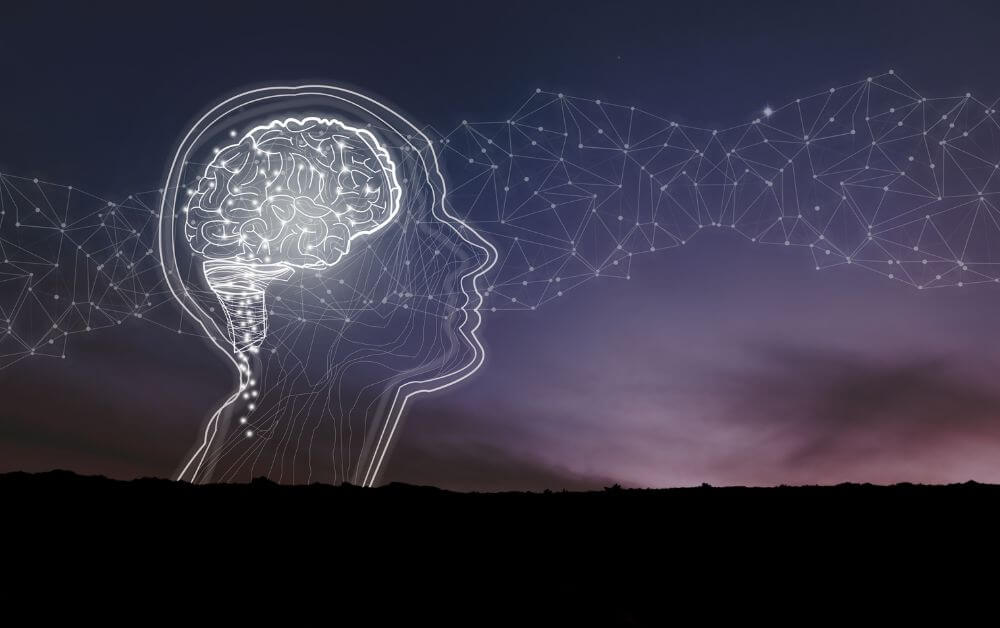Imagine a world where the boring parts of learning – the dumping data into our brains – is all done easily using neural transfers, augmentation and technology assistants. What’s left is for the human brain to do what it does best: creative thinking, problem-solving, idea generation, and more.
This week’s leap into the future takes a view that Generative AI is not actually that intelligent – it just has access to all the data. When human beings have access to the same data, we will come up with much better new ideas, insights and wisdom than GenAI seems capable of now.
The future is bionic: humans and machines working together, each doing what they do best to move our world forward.
TRANSCRIPT
Welcome to ThrowForward Thursday, my name is Graeme Codrington, and every week we jump into the future and see what’s going on there. Sometimes, there’s lessons for us today.
Today, I want to take you into one of my favourite movies of all time, into one of my favourite moments in that movie. It’s The Matrix, the first Matrix, of course, and there’s a moment in the science fiction movie where our heroes are trying to escape almost certain capture and death, and they arrive at the top of a building, breathless, and there is a helicopter. It is potentially a way to escape, but nobody can fly it, or as it happens, Neo turns to Trinity and says, “Can you fly this thing?” And she says, “Not yet”. And then the instructions for flying are uploaded into her brain, and now she can fly it, and off they go.
When I first saw that in the cinemas, it was, wow, just amazing, both in the moment in the movie, fantastic, but also this realisation that maybe that will happen in the future. Maybe we will have ways in which, as we begin to understand our brains and neuroscience more, we will be able to bypass some of the more boring parts of learning. The boring parts are the learning things by rote, off by heart, and getting data into your brain. Once the data is in your brain, then interesting things can happen as you begin to pull those bits and pieces together.
Now, I always had an advantage when it came to this. When I was at school, I happened to have a brain that can gather data and keep that data and keep it accessible and available to me, otherwise called a good memory. And I’m not showing off. You can develop your memory and I think developing memory skills is a really valuable and interesting part of education, the way education is currently set up. So, if you have a naturally good memory or can develop your memory skills, I think you’re always going to have an advantage.
But what happens if we don’t need the data-gathering part of the system anymore? And that what is really useful and really valuable is the application of that data to coming up with new ideas, to insight, too, well, this is when we start going beyond knowledge to intelligence and start going beyond intelligence to wisdom.
And I think that’s where we find ourselves in the world at the moment, is that we are developing systems that have the data easily accessible. I’m talking about Generative AI, and we are discovering that we think that that’s intelligence. It looks intelligent because it has all of the data and can give you that data in beautiful language. But we’re also beginning to discover the limits of that because it isn’t, in fact, intelligent, and it doesn’t, in fact, have wisdom, and it isn’t really creative. It just has access to mounds and mounds of data, which it can then easily make available to us.
We’re going to have to upgrade human intelligence over the next few years, and I think that we will, and I think that we will discover we’re not competing with the machines. The machines have just reached a level that many of us thought was baseline human level, and humans have got a lot more intelligence to add on top of that once data gathering is no longer the thing we spend most of our time doing.
A little bit of philosophy for you today and a little bit of insight into how intelligence is formed. But I think that a science fiction movie has some suggestions about what we need to be thinking about going beyond data gathering as our primary use of time to data intelligence, insight, and wisdom.
Thanks, as always, for joining me in the future, even if it’s a slightly philosophical view of what the future might hold. I’ll see you next week in the future again.
At TomorrowToday Global, we help clients around the world analyse major global trends, developing strategies and frameworks to help businesses anticipate and adapt to market disruption in an ever-changing world.
Subscribe to our team’s weekly newsletter filled with insights and practical resources to help you succeed in the future of work.
For all enquiries, please use this email: [email protected]
Graeme Codrington, is an internationally recognised futurist, specialising in the future of work. He helps organisations understand the forces that will shape our lives in the next ten years, and how we can respond in order to confidently stay ahead of change. Chat to us about booking Graeme to help you Re-Imagine and upgrade your thinking to identify the emerging opportunities in your industry.
For the past two decades, Graeme has worked with some of the world’s most recognised brands, travelling to over 80 countries in total, and speaking to around 100,000 people every year. He is the author of 5 best-selling books, and on faculty at 5 top global business schools.


